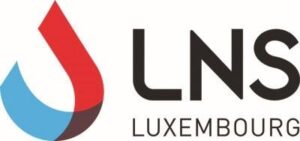

Funded with 2 million euros by the European Commission, the Coordination and Support Action (CSA) Building a European strategic Research and Innovation Area in Direct Synergy with EU and International Initiatives for Pandemic Preparedness (BE READY) is led by the ANRS | Emerging Infectious Diseases / INSERM (French National Institute of Health and Medical Research) and composed of 24 partners and affiliates from 15 countries, 13 European Member States, Norway and the UK, including the Laboratoire national de santé (LNS), who is leading the project’s communication and dissemination work package and participating in several other work packages.
Relying on the expertise of Public Health Organisations, Ministries (of Science, Education, Health, Innovation or Environment), and Research Performing Organisations to ensure a cross-cutting, interdisciplinary Global Health and One Health approach, the BE READY project aims on laying the preparatory groundwork for the foundation of the future European Partnership for Pandemic Preparedness which includes the preparation of an innovative and visionary European Strategic Research and Innovation Agenda (SRIA) for pandemic preparedness, as well as, the establishment of a secretariat to coordinate the creation of such partnership between European Commission and interested partners, with strong involvement of public authorities (policymakers, research funders). The project’s final purpose is to improve the European Union’s readiness to predict and respond to emerging health threats by better coordinating funding for research and innovation at EU, national (and regional) levels towards common objectives and an agreed Strategic Research and Innovation Agenda.
The kick-off meeting organised by the ANRS | Emerging Infectious Diseases /INSERM, in collaboration with Inserm Transfert, at Paris Campus Santé, gathered the consortium representatives to discuss how they plan to carry out the different tasks described in the project and build synergies to effectively identify needs, challenges and priorities in the Research and Innovation agenda and funding in the international and national level. It will also contribute directly to EU priorities and the UN Sustainable Development Goals.
Dr. Tamir Abdelrahman, Head of the LNS Department of Microbiology and BE READY Work package (WP) 7 – Dissemination, Exploitation and Communication leader, drew the attention on the importance of a pandemic preparedness partnership « The LNS has been at the forefront of research and innovation when faced with the COVID-19 pandemic where diagnostic solutions were sought, our team has built a state of the art genomic unit (LuxGEMM) that has been a key player in various national research initiatives. It is important to join efforts with our partners to establish a research Agenda for the pandemic preparedness. We have been working closely with the project’s coordination to ensure the proper dissemination and communication of the project’s results.”
Prof. Dr Friedrich Mühlschlegel, LNS Director, emphasizes the importance of being part of the European project Be Ready “The COVID-19 crisis has shown us the importance of a common pandemic preparedness approach and a coordinated action plan at the European level. As a European public health microbiology hub , the LNS is involved in Be Ready project through its Microbiology Department, allowing our institute to quickly and efficiently react to future public health emergencies in the country.”
The CEO of INSERM, Dr. Gilles Bloch, highlights the importance of a consolidated Strategic Research and Innovation Agenda for the future of public health in Europe:
“In line with the EC objectives, this research agenda should lead to innovations, by developing new preventive, diagnostic, and therapeutic measures. It will contribute to identify the basic molecular processes involved in infections by pathogenic microorganisms and their transmission from one individual to another, to predict, prevent, or control emerging phenomena at the global level, and thus directly or indirectly making our communities even more efficient in responding to emerging and re-emerging infectious diseases”.
Furthermore, Prof. Yazdan Yazdanpanah, Director of the ANRS | Emerging Infectious Diseases, explains the role of ANRS as BE READY coordinator:
« The ANRS | Emerging Infectious Diseases is in charge of supporting, coordinating and funding the national research community focused on Emerging Infectious Diseases (EID). Based on interdisciplinary research and with a One Health approach, the ANRS | Emerging Infectious Diseases has a unique capacity to contribute to the preparedness and response to EID.
The involvement in the CSA BE READY as coordinator is a key component of the European and global strategy of the agency to foster coordination in preparation and response strategy to limit the effects of emerging epidemic events.”
BE READY Context
The COVID-19 pandemic has confirmed and further highlighted the importance of planning and investing in research and innovation before a health crisis occurs. In this context, the CSA BE READY responds to the call HORIZON-HLTH-2021-DISEASE-04-06 “Building a European partnership for pandemic preparedness”.
BE READY will pursue the following six main Specific Objectives (SO) as the foundation of the project’s development throughout its activities and results:
Know-how for future public health emergencies
Dr. Michael McConnell, Associate Faculty at the National Center of Microbiology of the Carlos III Health Institute (ISCIII) and BE READY Work package (WP) 2 – Development of Partnership Proposal leader, tells us the meaning of BE READY for our future:
« BE READY is an important initiative to ensure that Europe is adequately prepared for future pandemics. This collaborative project brings together leading scientific, public health and governmental institutions across the EU to develop a framework for creating a European partnership that will allow us to respond to emerging health threats. »
Dr. Kathleen D’Hondt, Policy Advisor at the Department Economy, Science and Innovation of the Flemish Government / Vlaamse Gewest (VLO EWI) and BE READY WP 5 – Cooperation with the Commission including HERA leader, resumes the actions to be taken to guarantee a prepared future:
“Observe, Analyse, Exchange, Be Ready!”
BE READY consortium partners and affiliates:
 |
 |